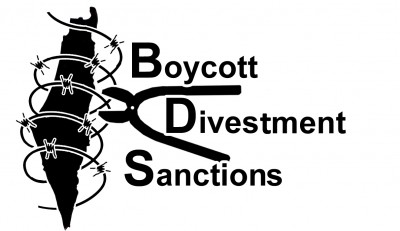AIPAC behind new US-EU Trade Legislation designed to thwart the Boycott, Divestment and Sanctions (BDS) against Israel

A new bipartisan bill engineered by AIPAC was introduced in Congress yesterday that ties the rejection of Boycott, Divestment and Sanctions (BDS) against Israel to future U.S. trade agreements with the European Union. H.R.825, The Israel Trade and Commercial Enhancement Act (pdf) was sponsored by Congressmen Peter Roskam (R-IL) and Juan Vargas (D-CA) and the Israel lobby has been behind the scenes pushing it for months.
A press release issued from Congressman Roskam’s website implies the legislation intends to leverage U.S. trade to protect Israel’s economic security:
This bipartisan bill would counter the Boycott, Divestment, and Sanctions (BDS) movement against Israel and strengthen the U.S.-Israel economic relationship. Over the past several years, a growing contingency of countries across the globe have sought to isolate and delegitimize Israel through BDS. This bill leverages ongoing trade negotiations to discourage prospective U.S. trade partners from engaging in economic discrimination against Israel….”The U.S-Israel Trade and Commercial Enhancement Act will ensure that American free trade partners never engage in this harmful and illegitimate political protest against Israel, while also protecting U.S. companies from foreign lawsuits targeting their associations with Israel.”
Israeli news reports and several American Jewish publications have reported the proposed legislation although it has yet to be picked up by any mainstream U.S. news publication.
JTA reports the bill
makes rejecting the BDS movement a prerequisite for moving ahead with a U.S.-EU trade plan that proponents say could be the largest free trade deal in history.
…
“Today, an alarming number of countries within the European Union and beyond have embraced BDS as a form of economic warfare aimed to cripple Israel’s economy and demonize its very existence,” Roskam said Tuesday. “These attacks not only threaten Israel but commercial relations across the globe.”
AIPAC’s report, Bipartisan Bill Battles the BDS Movement and Boosts U.S.-Israel Economic Relationship, makes no mention of their involvement in the drafting of the legislation although Rosie Grey’s Sept. 2014 Buzzfeed article, Pro-Israel Activists Aim To Block Boycott Movement With Legislation, reports AIPAC had been working on the draft for months:
The most powerful pro-Israel lobbying organization, AIPAC, is working on drafting legislation that would aim to counter the Boycott, Divestment, Sanctions (BDS) campaign against Israel, two sources familiar with the situation told BuzzFeed News.
The legislation, which has not yet been introduced and has been in the process of being drafted for months, would aim to prevent U.S. companies from participating in the campaign without infringing on Americans’ First Amendment rights to political speech. It would also try to make the Transatlantic Trade and Investment Partnership being negotiated between the U.S. and E.U. conditional on whether the E.U. takes action to stop BDS.
“The biggest provisions would be authorizing states and local governments to divest from companies deemed to be participating in BDS; denial of federal contracts to such companies; and threatening the conditioning of the US-EU free trade pact on the EU taking action to stop BDS activities within its jurisdictions,” said a Republican foreign policy adviser familiar with the legislation. The bill, the adviser said, originated with a former top aide to Illinois Senator Mark Kirk and has now been “expanded” by AIPAC, which is working with House and Senate offices on the draft.
“This legislation could really change the global dynamic with respect to BDS — in effect, it’s a boycott of those who boycott,” the adviser said. “It applies the successes we learned from Iran sanctions and applies them to those who seek Israel’s political destruction.”
Why are we prioritizing Israel’s fight against BDS in our trade negotiations with Europe?
Here’s some gloating by Hana Levi Julian at The Jewish Press:
If Europe wants to enjoy the benefits of what could be the largest free trade deal in history, the leaders of its member nations will have to pay a price: they must agree to reject the anti-Israel Boycott, Divest and Sanctions (BDS) movement, say two U.S. Representatives – one from each side of the political aisle.
…But there’s a catch. The legislation will “leverage ongoing trade negotiations to discourage prospective U.S. trade partners from engaging in economic discrimination against Israel, said Representatives Juan Vargas (D-CA) and Peter Roskam (R-IL), who co-sponsored the bill.
It’s not a done deal yet. The legislation, which the Jerusalem Post reports is “over a year in the making” still needs to make it way through committee:
Characterized foremost as trade legislation, authors of the bill expect passage to the House floor through the Committee on Ways and Means, where Roskam is a member and chairman of the committee Paul Ryan (R-Wisconsin) was thoroughly consulted on the bill’s crafting.
Annie Robbins is Editor at Large for Mondoweiss, a mother, a human rights activist and a ceramic artist. She lives in the SF bay area. Follow her on Twitter @anniefofani

